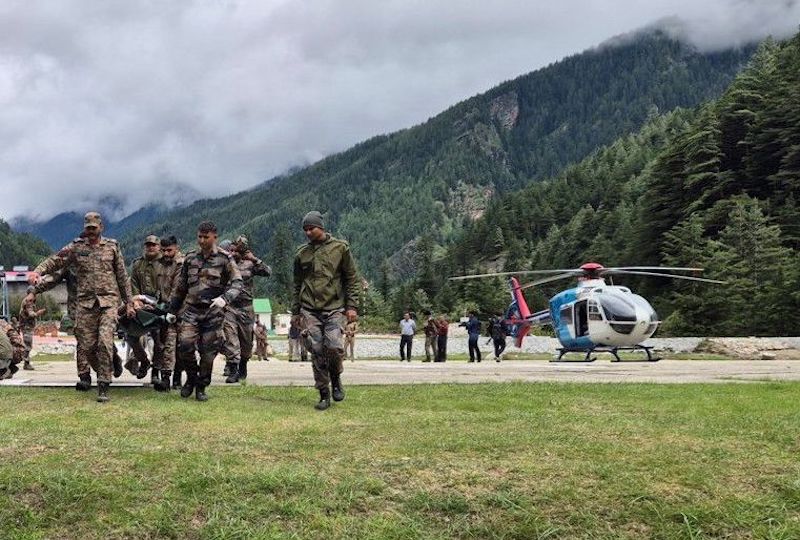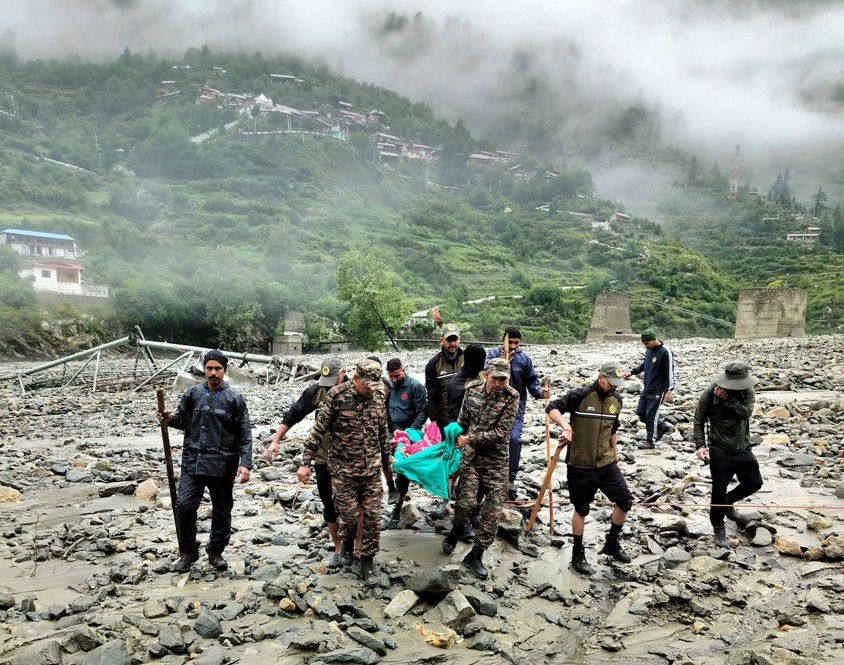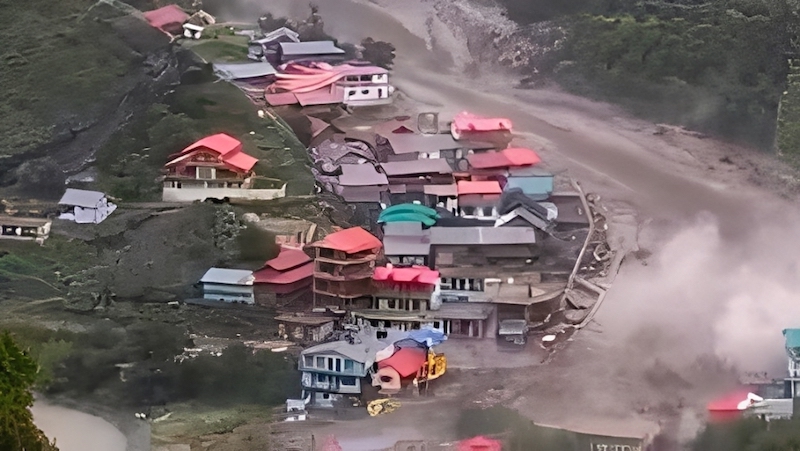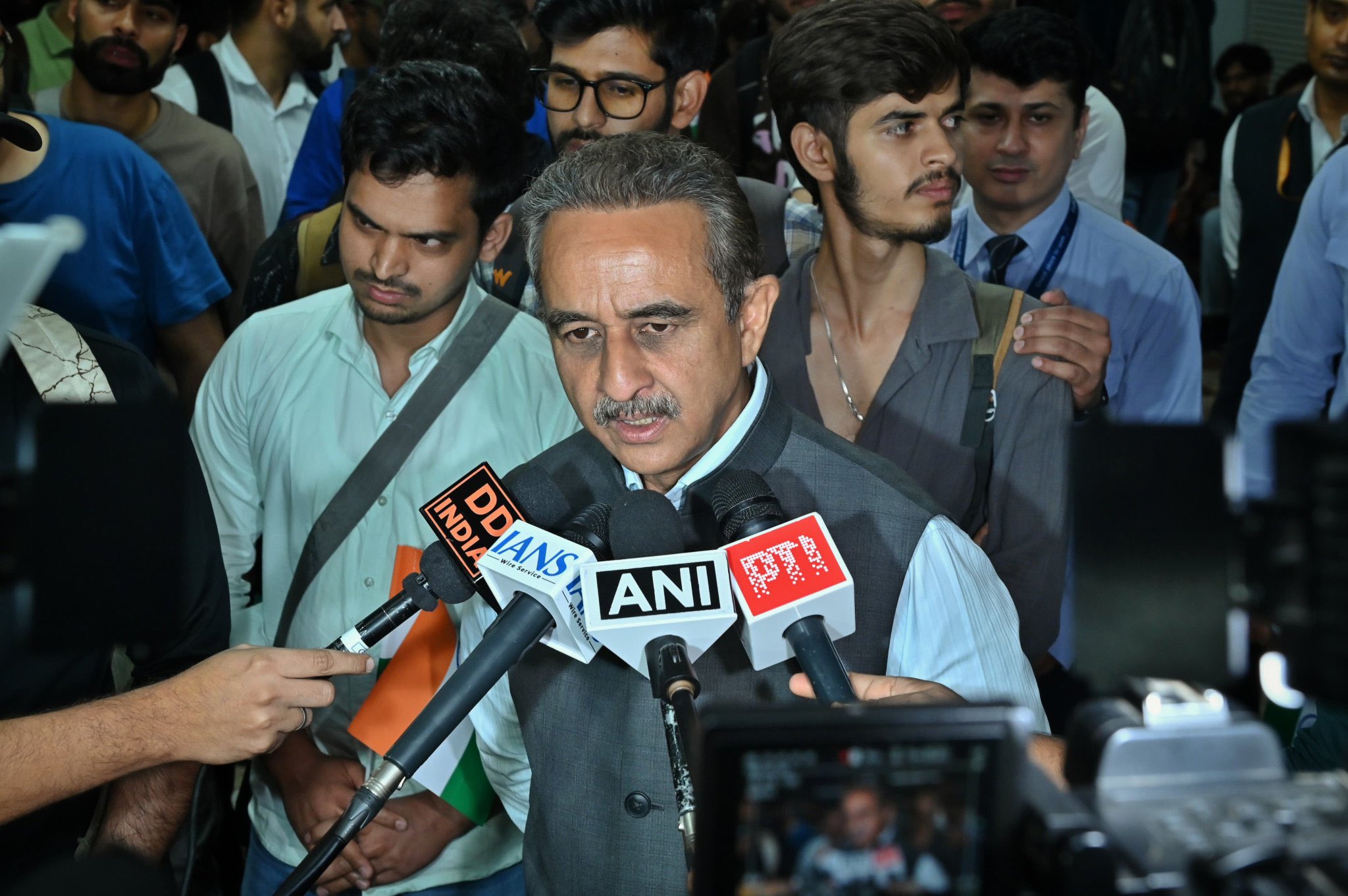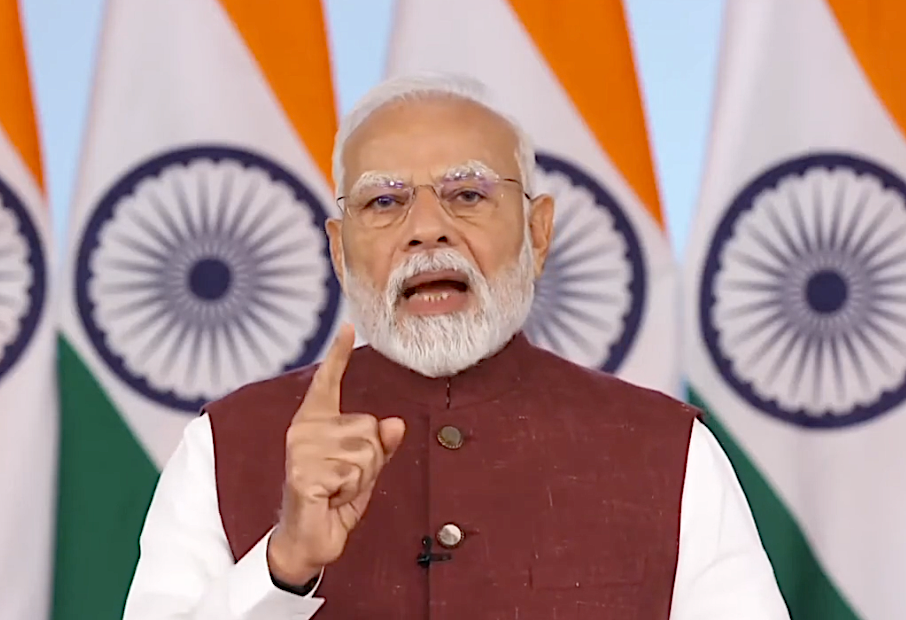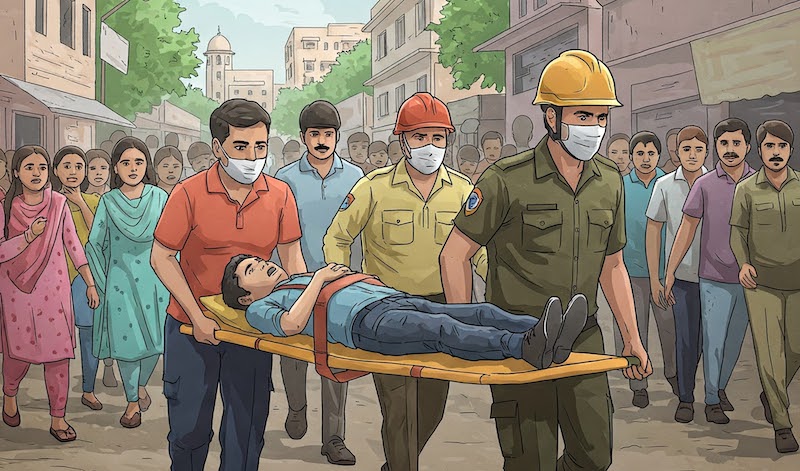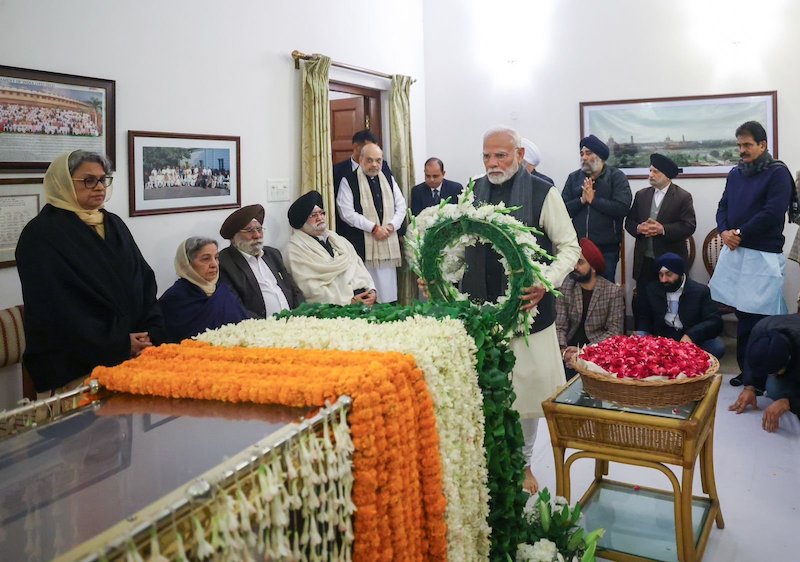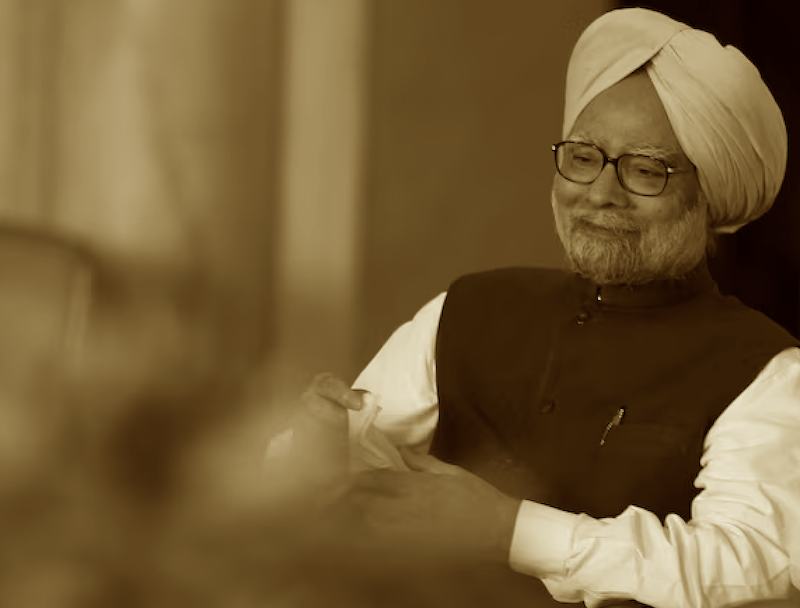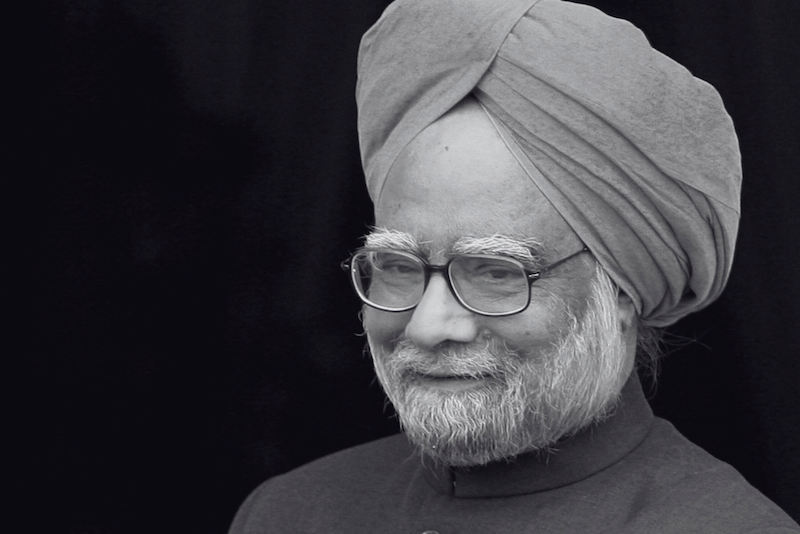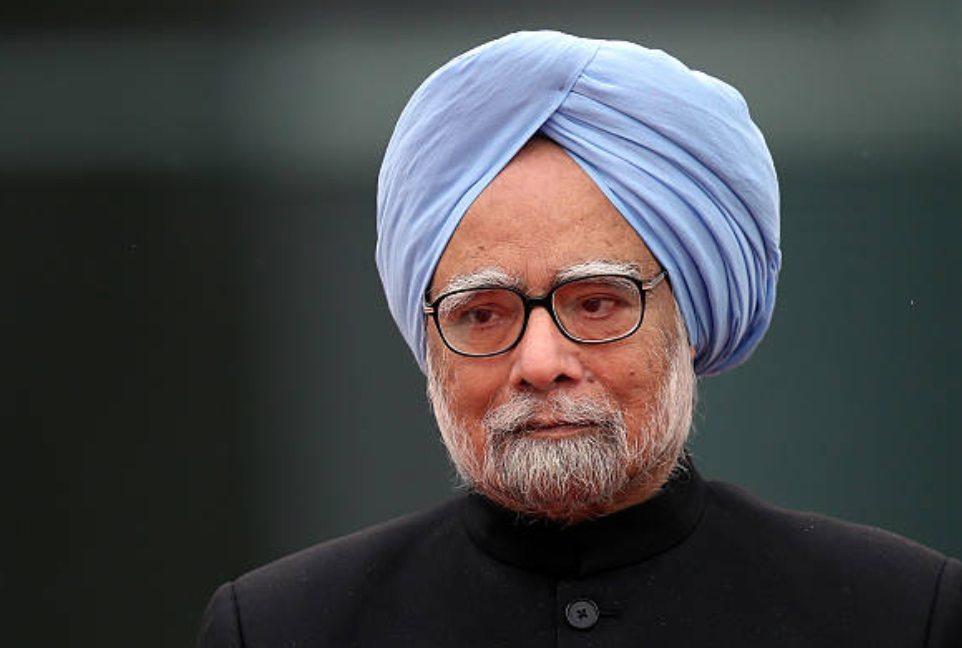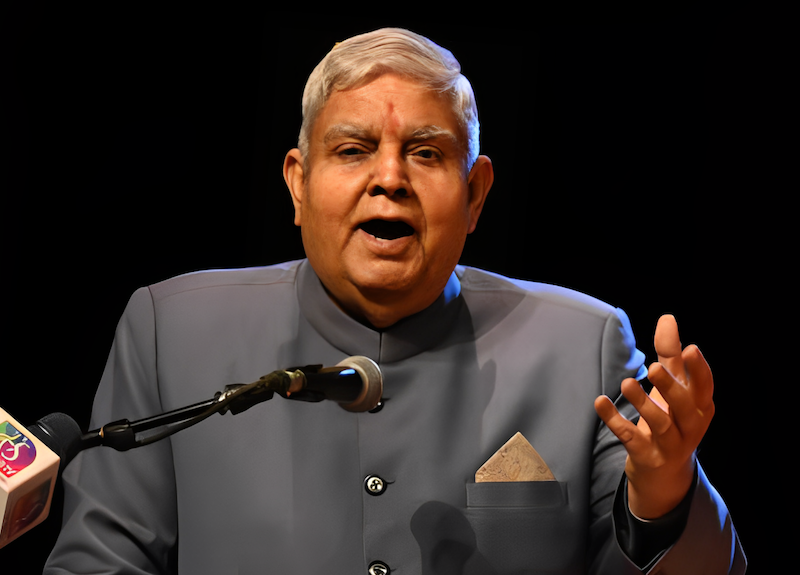 Jagdeep Dhankhar. (File photo)
Jagdeep Dhankhar. (File photo)
New Delhi: In a surprise move, the vice-president, Jagdeep Dhankhar, tendered his resignation on Monday night. He cited deteriorating health conditions and the need to prioritize medical treatment. The 74-year-old constitutional functionary’s sudden departure has sent shockwaves through the country’s political establishment, which come just hours after he chaired Rajya Sabha proceedings on the opening day of Parliament’s monsoon session.
Dhankhar submitted his resignation letter to the president, Droupadi Murmu, under Article 67(a) of the Constitution, stating his decision would take immediate effect. “To prioritize health care and abide by medical advice, I hereby resign as the vice-president of India, effective immediately,” he wrote in his brief letter.
The resignation follows a series of concerning cardiac episodes that have plagued Dhankhar over recent months. In March this year, he was admitted to the All-India Institute of Medical Sciences (AIIMS) Delhi for heart-related ailments, where doctors identified arterial blockages requiring immediate intervention. He underwent angioplasty with stent insertion and was discharged after making satisfactory recovery.
More recently, in June, Dhankhar collapsed during the Golden Jubilee celebrations at Kumaon University in Nainital. After delivering his address, he approached former parliamentary colleague Mahendra Singh Pal in the audience, became visibly emotional, and suddenly collapsed while embracing him. His medical team quickly intervened and revived him, though the incident raised serious concerns about his overall health condition.
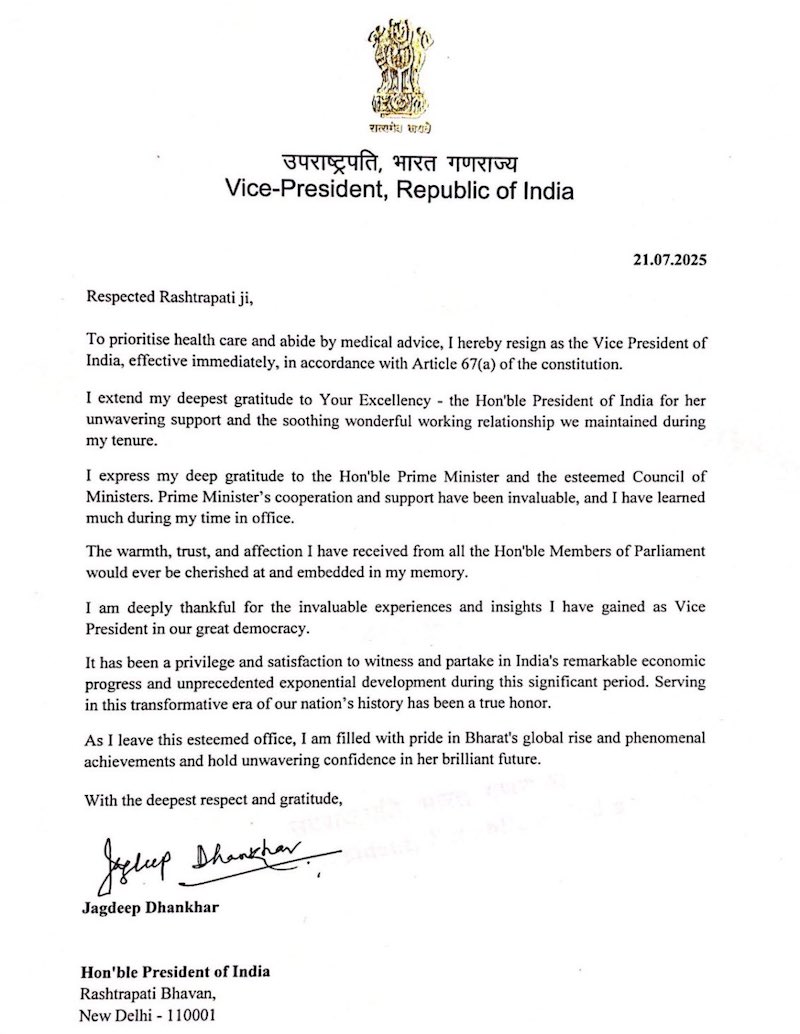 Jagdeep Dhankhar’s resignation letter.
Jagdeep Dhankhar’s resignation letter.
Timing raises questions
The timing of Dhankhar’s resignation has sparked considerable speculation across the political spectrum. The announcement came just hours after he had presided over contentious Rajya Sabha proceedings, including the handling of an opposition-sponsored impeachment motion against Delhi high court judge Justice Yashwant Varma.
Senior Congress leader Jairam Ramesh expressed bewilderment at the sudden nature of the resignation, noting he had been with Dhankhar until 5pm that day and had spoken to him as late as 7.30pm. “The sudden resignation of the vice-president and chairman of the Rajya Sabha is as shocking as it is inexplicable,” Ramesh stated, suggesting there was “far more to his totally unexpected resignation than meets the eye.”
Journey from village to vice-presidency
Born on May 18, 1951, in the village of Kithana in Jhunjhunu district, Rajasthan, Dhankhar rose from humble rural beginnings to become India’s 14th vice-president. The son of Gokal Chand and Kesari Devi, belonging to a Hindu Jat family, his journey from “Kisan Putra” (farmer’s son) to the nation’s second-highest constitutional office exemplified social mobility in democratic India.
His educational journey began at the Government Primary School in Kithana village, from where he walked 4-5 kilometres daily to attend Government Middle School in Ghardhana. In 1962, he secured admission to the prestigious Sainik School, Chittorgarh, on full merit scholarship, completing his Indian School Certificate Examination recognized by Cambridge University.
After graduating with BSc (Honours) in Physics from Maharaja’s College, Jaipur, he completed his LLB from the University of Rajasthan between 1978-79. Enrolling as an advocate with the Bar Council of Rajasthan in 1979, his legal acumen quickly earned recognition, and by 1990, he was designated senior advocate by the Rajasthan High Court.
Political career
Dhankhar’s political career began in 1989 when he was elected to the 9th Lok Sabha from his native Jhunjhunu parliamentary constituency as a Janata Dal member. Under the Chandra Shekhar ministry, he served as Union minister of state for parliamentary affairs from 1990 to 1991.
After joining the Indian National Congress in 1991, he contested but lost the 1991 general election from Ajmer. However, he successfully won election to the Rajasthan legislative assembly from the Kishangarh constituency, serving from 1993 to 1998. He later joined the BJP in 2003 and headed the party’s law and legal affairs department in 2016.
In July 2019, Dhankhar was appointed governor of West Bengal by the-then president, Ram Nath Kovind. His tenure in Kolkata was marked by frequent confrontations with the Mamata Banerjee-led state government on issues ranging from corruption and political violence to university functioning. The Trinamool Congress dubbed him the “real leader of the opposition,” while Banerjee eventually blocked him on social media, accusing him of daily mentions and unethical behaviour.
Tenure as VP
On July 16, 2022, the BJP nominated Dhankhar as the National Democratic Alliance’s candidate for vice-president. He contested against the united opposition’s candidate, Margaret Alva, and won decisively on August 6, 2022, securing 528 votes out of 710 valid votes – marking the largest victory margin since 1992.
As vice-president and chairman of the Rajya Sabha, Dhankhar’s tenure was characterized by assertive parliamentary interventions and efforts to maintain decorum in the Upper House. His final day in office saw him urging members to reduce acrimony and engage in constructive politics, stating that “a thriving democracy cannot sustain constant acrimony.”
Succession and political reactions
With Dhankhar’s resignation, the deputy chairman of Rajya Sabha, Harivansh, will assume responsibilities of chairing the Upper House until a new vice-president is elected. The Election Commission is expected to initiate the electoral process soon, with the ruling BJP-led National Democratic Alliance enjoying a majority in the electoral college comprising members of both Houses of Parliament.
The resignation has triggered widespread political reactions across party lines. Congress MP P Chidambaram wished Dhankhar “good health and a long life,” while other opposition leaders expressed both concern for his health and curiosity about the timing of his decision. Senior advocate and Rajya Sabha MP Kapil Sibal, despite political differences, expressed personal sadness, noting their 30–40-year professional relationship and mutual respect.
Dhankhar becomes only the third vice-president in Indian history to resign before completing his term, following VV Giri in 1969 and R Venkataraman in 1987, both of whom stepped down to contest the presidential election. His departure marks the end of a tenure that, while brief at just under three years, was characterized by spirited parliamentary leadership and unwavering commitment to constitutional duties.
The unexpected resignation has opened speculation about potential successors, with the ruling alliance expected to leverage its parliamentary majority to install a candidate aligned with its political vision. The process for electing a new vice-president typically takes several weeks, during which constitutional continuity will be maintained through existing arrangements.

